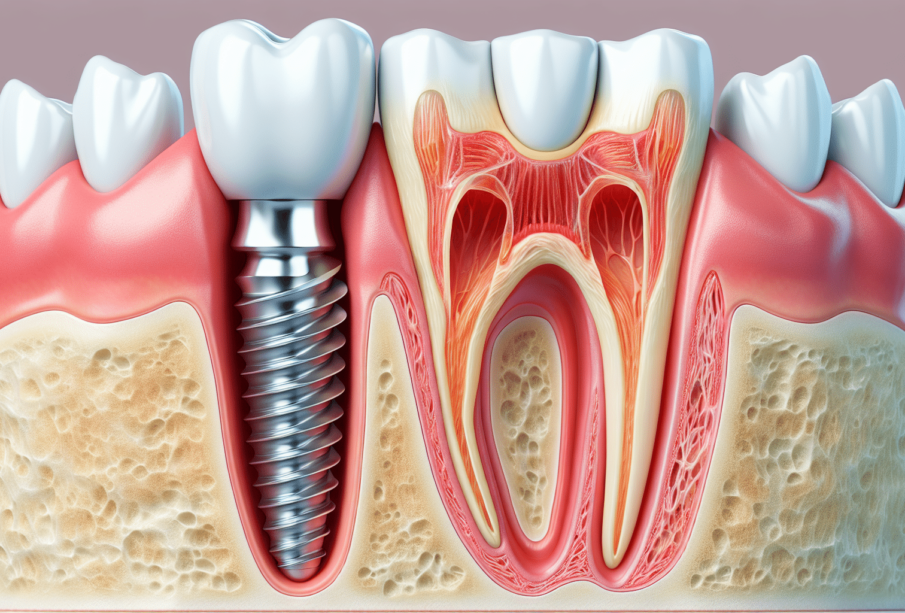Maintaining Dental Implants – Keeping Your Smile Shining Long-Term

Dental implants are a great way to fix the look and function of your smile after losing teeth. But implants need to be taken care of properly, just like real teeth do, so they last a lifetime. Your El Cajon dentist can give you more advice to make sure that your tooth implants stay in great shape for years to come.
Brush and floss for implant health.
Sticking to a regular oral care practice is important to keep your implants clean and free of plaque. Use a soft-bristled toothbrush and toothpaste that does not scratch your teeth twice a day.
Plaque likes to build up around implants and along the gum line, so pay extra attention to those areas. It is just as important to floss every day to get rid of food and germs stuck between teeth and implants. If you floss every day, you can avoid gum disease, which can be bad for the health of your implants.
Pick out the right tools. You might want to use brushes or floss that are made for implants. These tools are made to clean around implants in a way that does not hurt the skin of the implant.
Regular dental checkups are your partner in dental health.
Regular oral checkups are not only suggested; they are necessary for implant success in the long run. Your dentist will look at your implants for signs of damage, illness, or wear and tear during these visits.
Also, they can clean around the implants in places that you might not be able to get to at home. Finding and treating potential problems early on can help keep you from having problems and make sure that your implants last as long as possible.
How often should you go to the dentist? Checkups and cleanings with the dentist should happen every six months, on average. But, if your needs and risk factors allow it, your dentist may suggest that you go more often.
Diet and lifestyle choices for happy implants.
Some choices you make in your daily life can affect how healthy your implants are. Remember these things:
- Maintain a balanced diet: For good oral health, including your implants, you need to eat a healthy diet full of vitamins and minerals.
- Cut down on acidic and sugary foods: These foods can build up plaque and raise the risk of gum disease.
- Keep yourself hydrated: Lots of water keeps your mouth hydrated and gets rid of food bits.
- Quit smoking: It is bad for your health in general and can weaken the bone around implants, which makes it more likely that the implant will fail.
- Do not use your teeth as tools too much: For example, do not crack nuts, open bottles, or chew on hard things. This can hurt your implants by putting too much stress on them.
- If you grind your teeth, you should wear a mouthguard: Bruxism, which is when you grind your teeth, can damage your implants. You should get a mouthguard to protect your implants if you grind your teeth at night. Talk to your doctor about it.
Recognize potential implant problems.
Implants are made to last, but problems do happen from time to time. Keep these possible problems in mind:
- Peri-implantitis: When there is an illness around the implant, it can cause bone loss and the implant to fail. Pain, redness, and swelling around the implant are signs.
- Implant getting loose: Implants can become loose because of illness, bone loss, or damage. This could make you feel uncomfortable and unstable.
- Fractures in implants: These happen very rarely but can happen if there is too much force or stress.
If any of these things happen to you, you should see your doctor right away. Your implants may be saved if the problem is found and treated quickly.
You can make sure your dental implants stay healthy and work well for many years by following these easy tips. Remember that good habits are the key to a beautiful smile!













